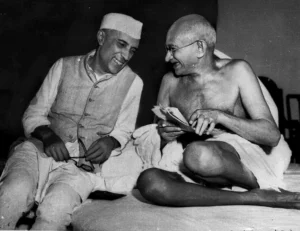About
Author: Amilcar Cabral (Guinea Bissau)
Genre: Speeches
Setting
Place: Guinea Bissau
Time: 1950-70s
My Rating (see what this means)
My Subjective Rating: 2
My ‘Objective’ Rating: 2.44
Introduction

I have always looked with a certain pride at India’s post-colonial experience. Unlike most countries which attained their freedoms post-World War II – India is among the only few which avoided either a civil war, extended period of authoritarian rule, or military coups. A large chunk of credit goes to its founding fathers – of which I like to call out two –
- Gandhi – whose unique non-violent struggle ensured the military was never the prime driver of independence struggle and there was no systematic otherization of pockets of populations as ‘colonial collaborators’ which can lead to civil wars &
- Nehru (the first prime minister) – whose commitment to democracy and constitutional procedures ensured they took root in the formative years of India’s independence.
Guinea Bissau suffered both coups and a long civil war following its independence from Portugal. Its tallest leader for independence was Amilcar Cabral – a guerilla fighter leading an armed struggle. I didn’t really had very high expectations from speeches of such a leader, however justified his fight.
I am happy to say ‘Return to the Source’ proved me wrong.
Synopsis
The book is a simple collection of eight speeches Amilcar Cabral delivered to various local and international audiences over the 10+ year of armed struggle. The speeches were tools to share updates on the evolution of their struggles, clinical analysis of strategies used as well as arguments to convince audiences of the validity of their case.
They from an instructive, if limited, guide to the history of Guinea Bissau, and into the mind of a fascinating individual who was much more that a guerilla leader.

Review
From a guerilla leader, fighting a unreasonable colonial power in Portugal and a dictator in Salazar, I expected angry, rabble-rousing speeches. Halfway through the first speech itself I made several pleasantly different conclusions…
- Cabral was not a populist who wanted to otherize the enemy. He always stressed they were not fighting Portuguese people, but the colonial state.
- He was very clinical in his strategies – having put a lot of thought in developing and communicating them. For instance – he clearly explains how various socio-economic groups in the country experienced colonialism and how best to convince them for the armed cause.
- He could think beyond the armed struggle to imagine what the state would look like post-independence and was committed to democracy (holding elections even before independence was granted in the territories he controlled)
… which make for a good and informative read.
The book, however, has a number of shortcomings –
- No editorial effort went into providing much context to the situation, or footnotes detailing aspects of the society to aid understanding
- The book doesn’t explain the choice of selected speeches
- It gets repetitive – which makes sense as Cabral’s audiences varied, but not really for the readers of this book
For Discussion: Mandela-esque or Mugabe-esque
Feel free to share your thoughts in comments

Amilcar was assassinated before his dream of an independent Guinea Bissau were realized. So, one would have to delve into the realm of hypotheticals to speculate whether under his post-independence leadership Guinea Bissau would have avoided coups and the civil war. This book certainly isn’t enough to allow for an educated guess in the matter. But knowing what I know of him from this book – I would bet him being much more closer to Mandela with power than to Mugabe.